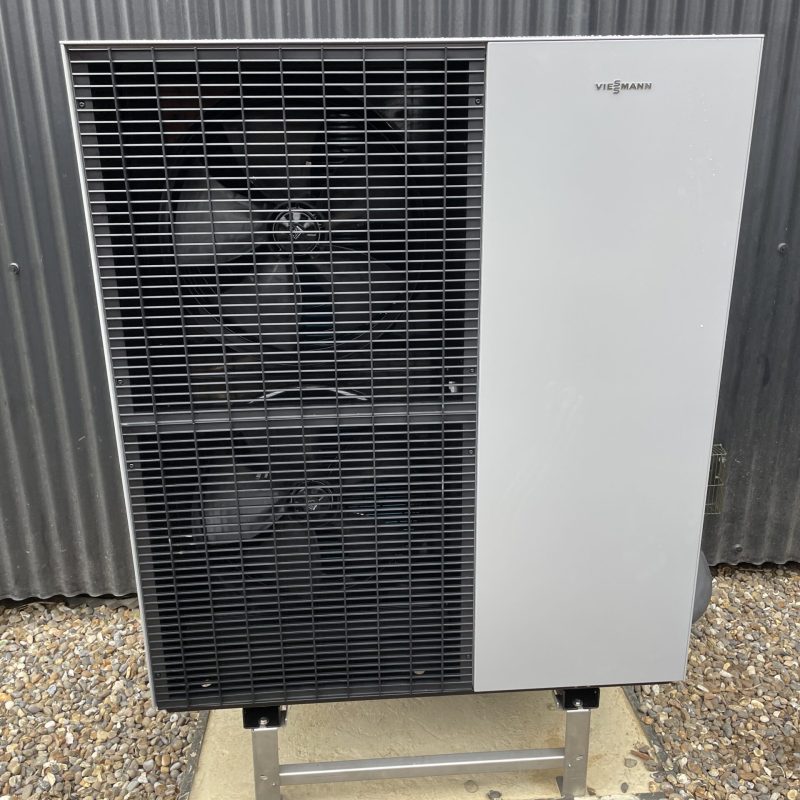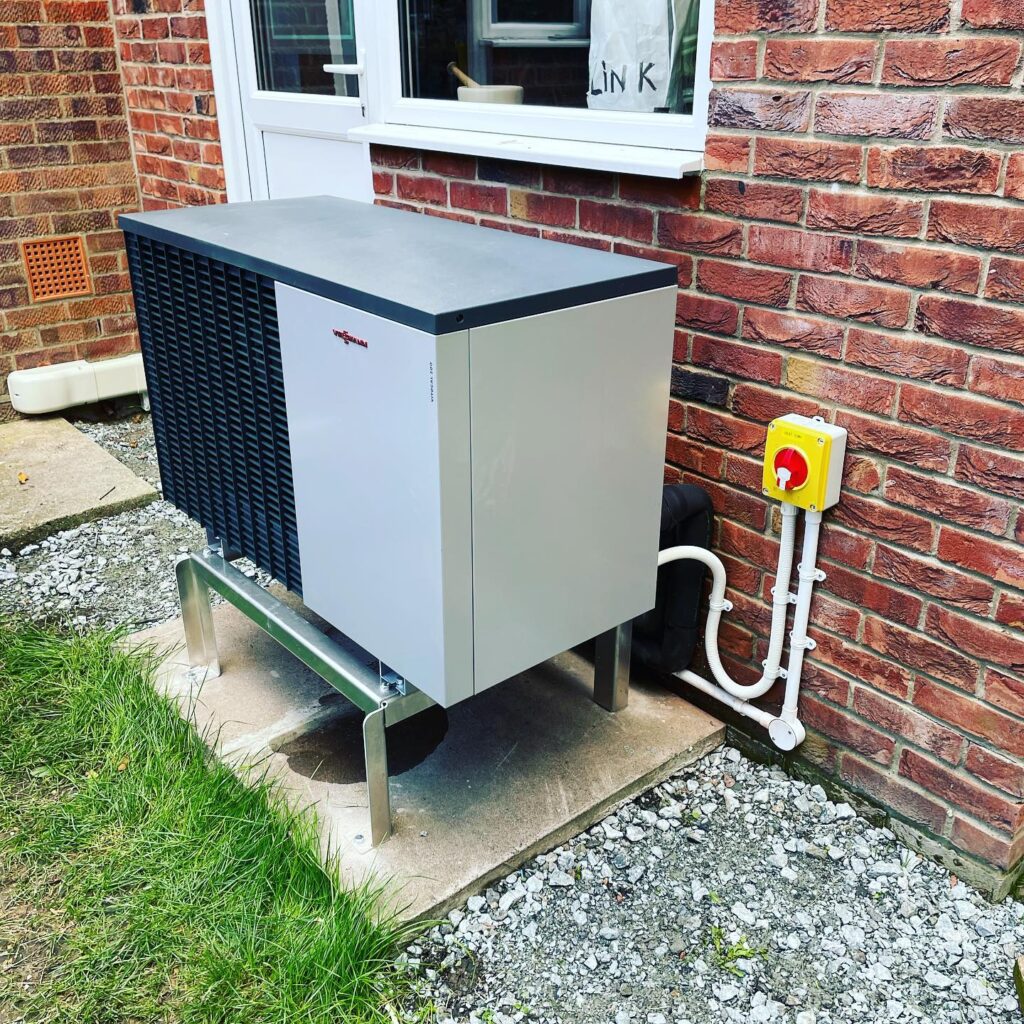As the demand for energy-efficient and environmentally friendly heating solutions continues to rise, many homeowners are turning to air source heat pumps (ASHPs) as a viable alternative to traditional heating systems.
Among the options available, two of the most popular types are air-to-water heat pumps and air-to-air heat pumps. While both systems offer significant benefits, they operate differently and are suited to different needs and property types.
In this blog post, we’ll explore the key differences between air-to-water and air-to-air heat pumps, including their requirements, benefits, and potential issues, to help you make an informed decision about which system might be best for your home.


An air-to-air heat pump, on the other hand, extracts heat from the outside air and uses it to warm the air inside your home. This warm air is then distributed through indoor units, typically via fans or ducts. Unlike air-to-water systems, air-to-air heat pumps do not produce hot water.
Choosing between an air-to-water and an air-to-air heat pump depends on your specific needs, property type, and climate. If you’re looking for a comprehensive heating solution that includes hot water, an air-to-water heat pump may be the better option. However, if you’re interested in a system that can provide both heating and cooling, and you don’t require hot water from the same system, an air-to-air heat pump could be the right choice.
At LC Installations, we understand that selecting the right heating system for your home is a significant decision. Our team of experts is here to guide you through the process, from initial consultation to final installation, ensuring you choose the system that best meets your needs.
With years of experience and MCS certification, we pride ourselves on delivering high-quality installations that maximise efficiency and comfort in your home. Whether you’re interested in an air-to-water or air-to-air heat pump, we’ll work closely with you to design a system that suits your property and lifestyle.
Both air-to-water and air-to-air heat pumps offer substantial benefits, from energy efficiency to reduced carbon emissions. By understanding the differences between these systems, including their requirements, benefits, and potential issues, you can make an informed decision that best fits your home and heating needs.
If you’re considering an air source heat pump for your home, contact LC Installations today. Our knowledgeable team is ready to answer your questions and help you find the perfect solution for a more comfortable, energy-efficient home.
Call today for a free, no obligation quote and find out how we can help.